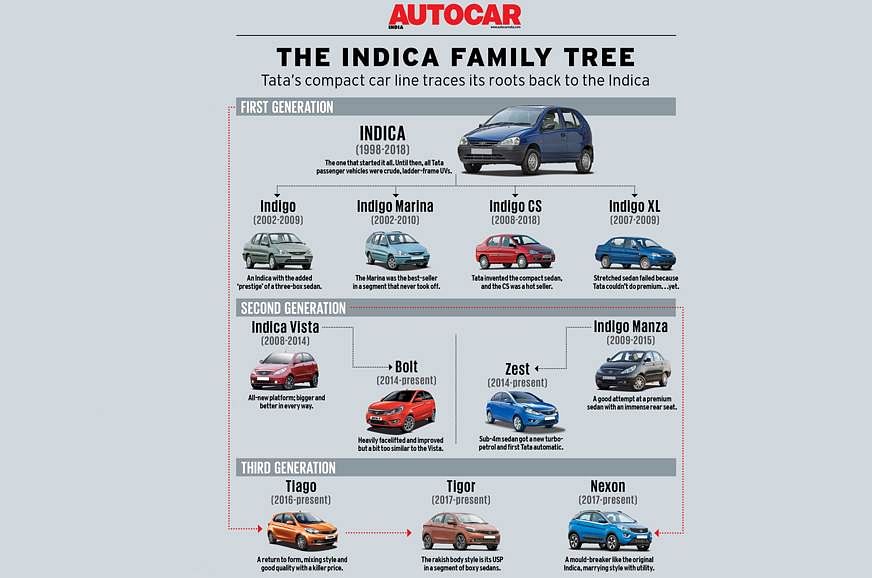Tata Motors produces its four millionth passenger vehicle
From the Sierra in 1991 to the Altroz, Tata Motors has redefined indigenous passenger vehicle manufacturing.
Tata Motors today rolled out its four-millionth passenger vehicles (PVs) from the Pune plant. The company has produced India’s first indigenously developed passenger car – the Tata Indica. The company had achieved the one-million production mark for PVs in FY2006 and the three million milestone in 2015.
Tata Motors produced its first passenger vehicle – the Tata Sierra – in 1991. Seven years later, the news-making Tata Indica was launched and was the car that changed the face of the company.

The Tata Sierra SUV and Tata Indica were the first fully Indian engineered cars with no foreign collaborations. The innovative Tata Nano grabbed global attention when it was revealed at the Auto Expo 2008.
Honouring the legacy of Mr. Sumant Moolgaonkar, Tata Motors introduced the Tata Sumo in 1994. With the launch of the Tata Safari in 1998, the company pioneered the concept of a ‘lifestyle SUV’ in India. More recently, Tata Motors has energised the entry level car and the compact SUV segment with the Tiago and the Nexon respectively.

At present, its ‘New Forever’ BS6 range comprises the Tiago, Tigor, Nexon, Harrier and the Altroz. Tata Motors has been India’s first car manufacturer to have received a 5-star Global NCAP rating for its model, the Nexon. Tata Motors is also India’s largest EV manufacturer with a 67% market share.
Commenting on the four-millionth-rollout milestone, Shailesh Chandra – President, Tata Motors Passenger Vehicles Business Unit said, “As India’s home-grown automotive brand, we are delighted to have reached this prominent milestone for our passenger vehicles segment. Since its inception, Tata Motors’ commitment to introducing products that have the best-in-class safety, design and performance has brought to life the vision of our Chairman Emeritus Mr. Ratan Tata."
"Over the last 30 years, we have rolled out icons that have not only catered to evolving customer needs but have also set new benchmarks in their respective segments. Our ‘New Forever’ range of passenger vehicles only strengthens our commitment towards our customers. In bid to become future-ready we have embarked on a sustainability journey with EVs and are leading India’s journey towards sustainable transportation," added Chandra.
Over the past three decades, Tata Motors has also significantly evolved in terms of manufacturing and technology. Tata Motors was the first Indian company to develop indigenous capabilities from the design, development, validation and manufacturing stages as well as have a streamlined sales and service operations, all under one umbrella. It was also the first car manufacturer to install a crash test facility in India. At present, Tata Motors has in-house design and simulation studios that execute rapid prototyping, digital product development, and a fully-equipped emission testing facilities to enhance its engineering capabilities, thereby developing best-in-class products. Tata Motors has state-of-the-art manufacturing facilities at Chikhali, Pune; Sanand in Gujarat; and the FIAPL plant at Ranjangaon in Pune.
RELATED ARTICLES
Cosmo First diversifies into paint protection film and ceramic coatings
The Aurangabad, Maharashtra-based packaging materials supplier is leveraging its competencies in plastic films and speci...
JSW MG Motor India confident of selling 1,000 M9 electric MPVs in first year
The 5.2-metre-long, seven-seater luxury electric MPV, which will be locally assembled at the Halol plant in Gujarat, wil...
Modern Automotives targets 25% CAGR in forged components by FY2031, diversifies into e-3Ws
The Tier-1 component supplier of forged components such as connecting rods, crankshafts, tie-rods, and fork bridges to l...






 By Autocar Professional Bureau
By Autocar Professional Bureau
 24 Oct 2020
24 Oct 2020
 17267 Views
17267 Views












